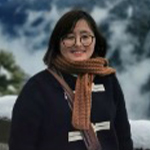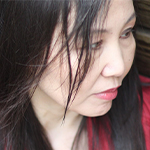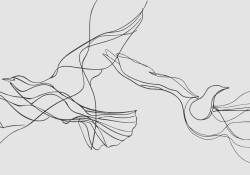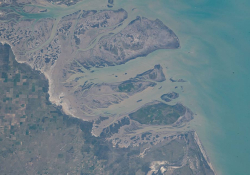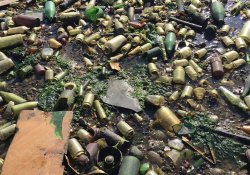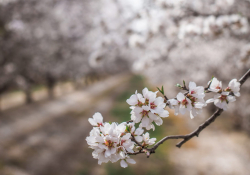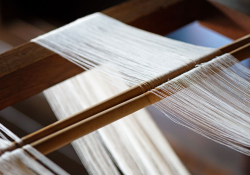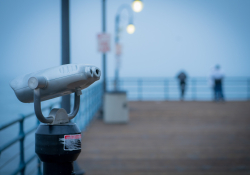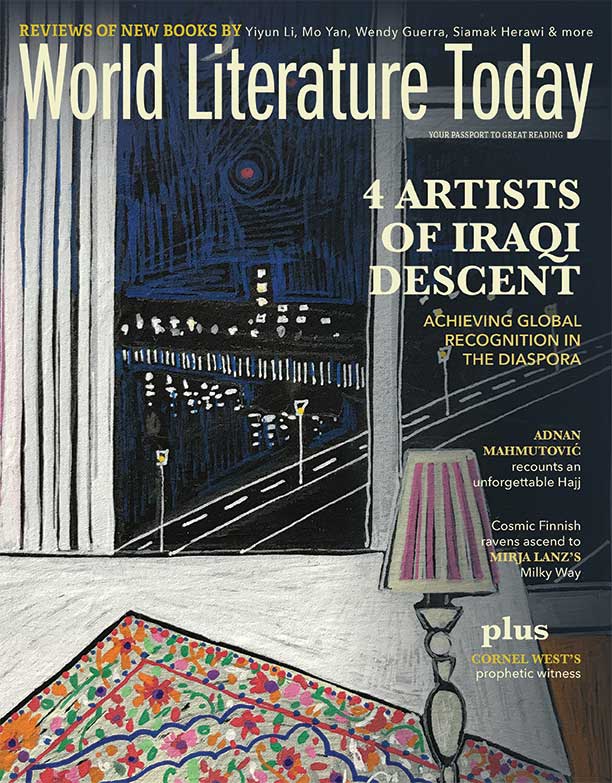Two Poems from China
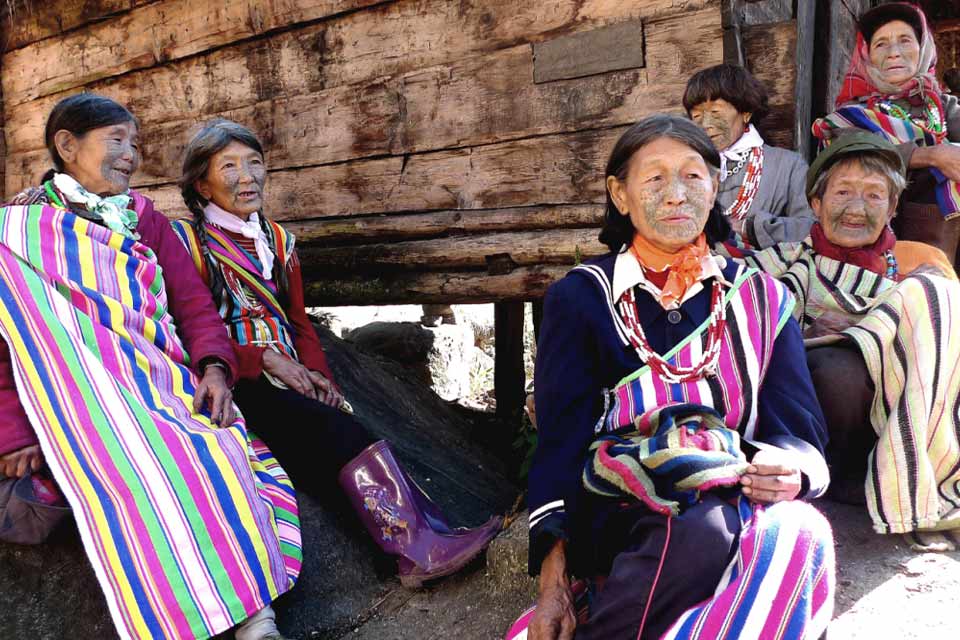
Prophet
When crows fly over the villages
Panic erupts like a flash flood
Soon after, as Nanmusa has prophesied
A plague spreads along the valley
Some life soon evaporated
When cuckoo birds chirp around
Villagers look at each other, at a loss
Soon after, the prophecy of the old woman of face tattoos
Comes true, the birds’ chirping has called away
Some human souls
Time passes as in an hourglass
Overshadowing the Nanmusa of Derung folks
Now, women of face tattoos are becoming rare
But when crows circle, cuckoos crying out
Villagers still wear sadness on their faces
Seven Color Lone-Dragon Blanket
Grandma of tattooed face throws the twisted twines
Into a dyeing vat. The twines turn red, yellow, blue, black
Red is the orange-red bark of winter melons
Black is the black of walnut bark
Yellow is the yellow of the bark of three-needle trees
Blue is the blue of the roots of woad herbs
Gru, a teenage-looking middle-aged Lone Dragon man
Loves ancient crafts. He builds a traditional
Lone Dragon plant-dyeing lab
On the wisdom of old men’s memory
With red, black, yellow, and blue
He vows to make seven colors
For the women weavers of Lone Dragon
Not far away, the old face-tattooed Li Wenshi
Is weaving a rainbow in the sky
Translations from the Chinese
Translator’s Note
by Ming Di
Gao Qiongxian is the first Indigenous-minority women poet of Derung (Dulong) nationality from Yunnan province, southwest China. Derung is the smallest ethnic group in Yunnan. Derung people practiced shamanism up till the early 1950s. The first elementary school was opened in 1956 there, ending the age of Quipu (using knotted ropes as a writing system.)
Gao speaks Derung as her mother tongue. She has learned Chinese since she attended elementary school at age seven (it was a boarding school in the nearest township; she would have walked two days to get there). Derung people are named after the River of Derung (Lone Dragon), which is narrow with cliffs on both sides. No water transportation was possible; the rope bridges across the river have been slowly replaced by cable bridges. It used to take seven days to climb the mountains to get to the town until the first horse carriage road was built in 1962, which shortened the seven-day trip to two days.
Gao Qiongxian writes about the Derung culture and documents Derung life in detail, from the women with face tattoos to the traditional weaving, from how the mountains are closed for six months in the winter to the ritual of having a rooster lead the way for a dying soul. She writes in Chinese, the official language in China, her second “mother tongue,” which she can use fluently like a native. She takes us to her hometown, a remote village between China and Myanmar, where people could finally get out of the mountains in the wintertime in 2014 when the first tunnel highway was built, but were still living a poor life until 2019. Her language is calm when she writes about all the unbelievable things in the Derung tribe. Her lines are well crafted even though she has never had training in literary writing.
Gao has spent most of the last eight years conducting field investigations of Indigenous populations in Gongshan County, her hometown, and in county planning and construction. She writes poems and essays in her spare time. She sees and hears things around her. As readers, we can feel the hardship of life in the Derung community. We can see the natural colors of herbs and tree bark and hear crows and cuckoos in her poems.
Chinese poets have been divided into “intellectual writing” and “popular writing” since the Penfeng Debate in 1999. Indigenous-minority poets seem to stand in between but outside the circle of the two major camps. Gao Qiongxian has the mind of an intellectual writer but is more down to earth. Her poems are not high-tuned or lofty or pretentiously witty like the former, nor “chicken-odds-dog-ends” like the latter. When Chinese poetry is becoming homogeneous (even though from different directions), Indigenous-minority poetry enters the scene, making a breakthrough.
